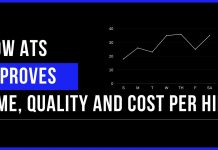Performance reviews are an important part of career development for any individual. For the employer, it’s the time to take stock of the progress made by the employee.
It also provides helpful insights to the employee and to prepare her for the direction of improvement in the future.
 About Performance Review:
About Performance Review:
The performance review helps the manager analyze the performance of different employees and identify the ones that need more development and the ones that are more self-driven and independent.
All these said performance reviews can be whacky, nerve-wracking, confusing and many times ineffective. Employers need to be smart to get the performance review done quickly and effectively.
Making the review form more focused to elicit objective, positive and supportive answers that can be evaluated for a better understanding of the employees, is a very desirable objective. This would also help them to be clearer with their duties, the company’s expectations and their areas of improvement.
Performance Management Software:
Performance management software is the best tool for performing an effective employee review program.
Some of the reasons for purchasing performance management software are
- HR team not able to organize the process effectively.
- Employees unhappy with the current system
- More of manual work
- Having low employee engagement.
- When employee missing goals and deadlines
- Chances of high risk when important decisions are taken.
There are many types of performance review software today, so selecting the right software which suits our requirement is an important thing you need to consider.
Types of Performance Management Softwares:
The best performance management software offers
- Peer & 360 Reviews
- Traditional Reviews
- Fully Customizable
- Real-time Feedback
- Completion Tracking
- Time-based Reviews
- Predictable Performance
- Continuous Performance Tracking
- Comprehensive Dashboard
- Employee-Friendly
- Hiring Quality
- Employee Development
- 9-Box Reporting
Characteristics of Performance Management System:
- Performance and goal tracking
- Customizable reviews
- 360 Degree reviews
- Peer Reviews
- Performance review cycles
Performance Review Tips for Employers:
Employee performance reviews are an essential and important part of the organization. The method and approach we plan should be perfect, only then we can make the review process successful. Here are some suggestions to keep in mind while conducting a performance review
Few performance review tips for employers:
- Share the performance review format
- Gather reviews and feedback from others
- Prepare well before the discussion
- Meeting with employee
- Effective communication is the key
So while discussing the review form keep an eye on how the questions relate to the specific employee.
How to Answer Performance Review Questions:
1. Avoid one-word answers:
Try to make your questions more subjective than those that could be answered with one word. Let the employee give his view which could help you evaluate it in a much better way.
For example, rather than asking “What is the problem with your work?” you can ask “what areas of the work you find problematic?”
2. Set a time duration for the Review process:
Decide on how long the performance review will last so that you can plan the review schedule. A review without a time duration just tends to create more problems than answers.
So let it be in episodes of 45-60 min so that the important areas are covered. Its helpful when you start the review meeting to say, “ Hey John, We’ve got 60 minutes to complete our review discussion” to set expectations.
3. Deal with Select but priority areas of the Review:
It’s advised that in a performance appraisal meeting, do not discuss more than 2-3 areas of improvement. It would give a focus to the meeting and would also help to identify and chart out solutions to issues in consultation with the employee.
The lower priority issues can be covered outside the review on a more day to day basis since they are not that critical in the first place.
4. Be balanced in your Approach:
Behaving like a dictatorial boss and just screaming your guts out on identified errors doesn’t help anyone’s cause.
It’s important to be supportive to your employers and together analyzes the problems and try to identify solutions and changes that are needed.
5. Avoid being Arrogant and Sarcastic:
It’s important that your tone in the review is not arrogant or sarcastic. Don’t ever make the employee feel that you are taking undue advantage of your authority as the boss. Try to comment only on the performance and work rather than on their personal behavior.
If you expect the review to be rough because of poor performance, then its even more important that the tough message is delivered professionally and without any malice.
6. Highlight and praise the good:
Don’t hesitate to praise the good part of the employee’s performance. Be direct and specific about the good part of their performance and asking them to keep it up in the future. This would help in the increase of their morale to do more better work.
It’s also helpful that you praise qualities and character traits in general and highlight them with specific tasks or projects.
7. Cover the long period:
Try to talk about the period of time like 3 months, 6 months or even 1 month if you frequently conduct the meeting.
Don’t just discuss the recent activities. Focus on the long term performance so that the message to the employee is clear that the evaluation is not based on a few recent data points for good or for bad.
8. Keep the conversation flowing:
It’s important to let the conversation flow in the meeting. Don’t interrupt any employee while she is saying and give them a patient hearing.
Let the conversation be light, polite and helpful but keep it focused on the areas that you specifically want to highlight.
9. Handling Emotions Sensitively:
You need to be calm and understanding with the employees. It may happen that some employees get emotional during the meeting.
Handling emotional outbursts carefully and sensitively will help you solve issues before the meeting ends rather than handling it after the meeting which affects morale and productivity in general.
10. Obtain a Commitment:
At the end of the review, ask the employee to give a commitment to the company that he would work on his weaker areas, solve the issues and show improved progress to the company.
Performance appraisals need to be handled with care to be able to generate effective results. For the really clued in managers, this can be turned into an opportunity to regroup, inspire and drive significant performance results from employees.
The one question that gets asked every time a performance review is mentioned is the questions that need to get asked and answered in the review.
Here is a collection of some good questions that various HR Practitioners have used and recommended over various studies to ask an employee during the performance review process.
Performance Review Questions:
1. What is your biggest achievement in (period of time)?
This question would help you to understand and make the employee herself realize the progress of her work towards her goals.
2. What has been your most challenging aspect of work?
The answer to this question gives you an insight of the problematic areas, weaker aspects and where she needs to work on and improve. This is an important discussion area.
3. What’s an alternate way to do this job?
This answer let employee provide his ideas to perform a job which could be easy and different and more effective.
4. Which resources are helpful to you?
Resource planning is an important part of managing an organization. This answer would help you to realize which resources are really helpful and which are being wasted. This would help you to use the potential resources and reduce waste.
5. Which part of the job is your favorite?
This question would help you to know the part of job employee love to do which make him good at that. This is your area of highlighting areas that are enjoyable to the employee and emphasize positive reinforcement.
6. How we could help you with your job?
It’s important to know what your employee expects from you on your part. Asking him this question make a good bond between you two which would help you to develop his working.
7. How can fun add to the work?
Who doesn’t wish to have a fun element in their work? A break to play, or small competitions or appraisal presents can make it fun for an employee to do the work. Asking this question would flood in with ideas to make the work easier and fun for them.
8. What are your plans with this job?
Every employee has some target planned from the current job. Do ask about plans, objectives are and how she wishes to accomplish them.
9. What are your strengths in this job?
This is probably a done to death cliché but asking this helps you understand whether the weaknesses turn into strengths overtime or not. This question asked for multiple reviews over time will help you really evaluate whether the employee made progress in identified areas.
10. What have been your contribution in the team works or the total goal?
It’s important to know the contribution of the employee had in the teamwork and whether it matches the standards expected by the team. Put simply, she might be outstanding individually but in a team does she pull the team up or drag it down.
11. What is the strongest/’weakest part of the firm?
You must know what an employee thinks is the strongest/weakest area of your firm. This would help you work on fortifying the strengths and improve the areas of weaknesses.
12. What do you expect from the company?
This is very important to be asked from new employees especially. Understanding their needs and expectations would help you develop better.
13. How you find the working environment of a company?
Employees work in your office and need to be comfortable to deliver the best results. So you must ask about the internal culture of the firm and their view on it.
14. Now rate your job satisfaction and a reason for the contribution?
This must be the last question of your review asking the employee to rate his job on what he feels and why.
Questionnaire to Measure Employee Performance:
Performance review meetings are one on one conversation between the manager and the employee. It is a platform where the employee gets a chance to showcase his work and gets feedback from his employer.
The two main things that can result in an effective performance review are
1. Getting honest and genuine feedback
2. Tips to boost employee motivation, performance, and overall productivity.
Based on these two important concepts, we have summed up a few questions which for your comfortability have been differentiated into sections
Job Satisfaction/Role Alignment:
- What do you like most about your job?
- What do you like least about your job ?.
- Which professional development training you like the most?
- What encourages to complete your work?
- What we can do to make work more enjoyable for employees?
- What attracted you to this company
Leadership Effectiveness:
- What makes a good leader?
- If you were leading this company what you would do differently?
- How would you like to get feedback on your work performance?
- What piece of advice would you give to new leaders on leading the team?
- How can we improve or boost communication between employees and managers?
Feeling Valued:
- Which one do you prefer the most public or private recognition?
- How do you feel if recognition is from supervisors or senior leaders?
- What interests you more (among gift cards, tickets, personalized gifts etc)
- Which kind of career growth is most vital for you (team lead, salary increase, promotion)
- What kind of recognition is important to you?
- What kind of recognition is least important to you?
Work Environment:
- How can you do your work best?
- When can you do your work best?
- What Would Be Your Ideal Working Environment?
- What do you think are your biggest obstacles?
- What kind of tools or technology would lighten your work?
- What Do You Like Most About This Company?
For more question to ask your employer during a performance review, refer to this article (pdf): questions to ask manager during performance review
A standardized review questionnaire with implemented and evaluated over time helps you keep an eye on employee development at regular intervals.
Implementing a timely and effective performance review process at your organization can help uplift employee motivation and productivity significantly.







































